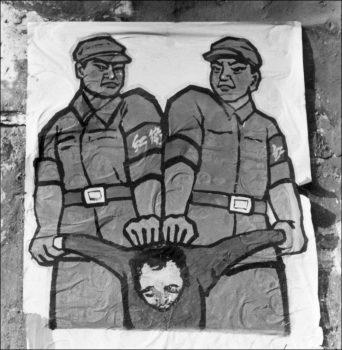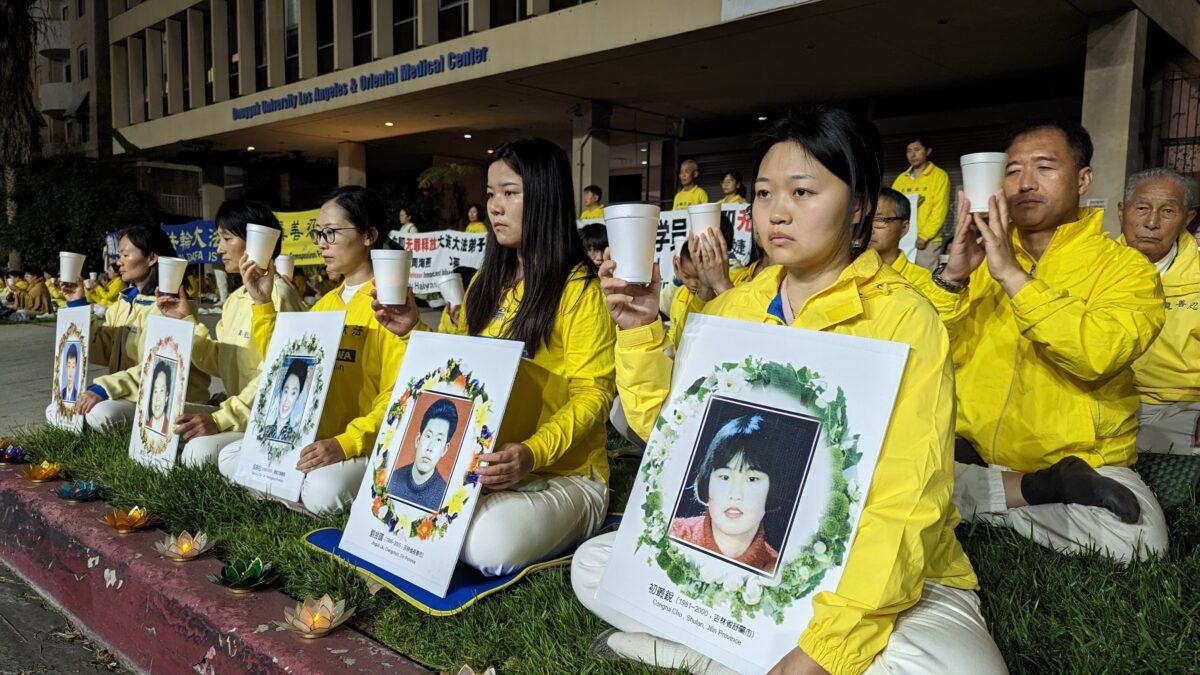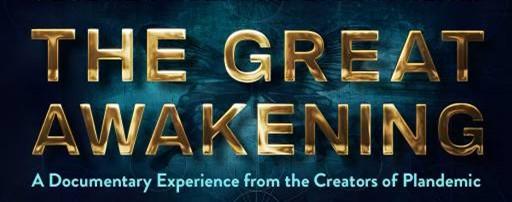Most people do not realize that America has been at war for a long time, but it is not a conventional war—it is a psychological war, said a filmmaker who recently released a documentary directing people’s attention to this important issue.
The new film does not highlight much about COVID-19 or COVID vaccines as filmmakers stayed away from these topics, Willis said. Instead, the documentary illustrates “what all of those [COVID-related] crises were used to advance.”
To explain their point, the filmmakers drew a comparison to a couple of cultural revolutions in history—primarily Mao Zedong’s Cultural Revolution in China—to show that the only way for the past dictators to be able to commit atrocities and genocide was to lure the people into a hypnotic spell, to become their force for doing evil, Willis said.
Organizations, such as Mussolini’s Blackshirts, Hitler’s Youth, Lenin’s Red Army, and Mao’s Red Guards, were examples of such forces formed to accomplish dictators’ evil objectives, Willis added.
“It’s a real wake-up call to the people to understand that we’re being used against each other,” Willis said. “When we are united, that’s when we are literally unstoppable.”
Dictatorship Needs Complicity
None of the dictators of the past would have succeeded in committing atrocities or genocide without luring the people into their armies, Willis said.“Most of [those people] are just citizens that were enlisted in to fight for the dictators and to fight against their own people, and in many cases, against their own families.”
There are people that were part of Mao’s Red Guards that are now coming out in deep remorse of turning their own parents in, Willis said, “but at the time, they were under such a spell that they celebrated the imprisonment, the torture, and execution of their own parents.”
“They thought they were doing something so righteous for the world.”

Zhang, radicalized by the Cultural Revolution, was just 16 in 1970 when he reported his mother to the communist authorities for criticizing the political leaders of the Chinese Communist Party (CCP) for promoting idol-worshipping, and for supporting Mao’s political opponent in a family argument.
Zhang’s mother was imprisoned and executed by firing squad upon his denouncement.
Later, Zhang deeply regretted his action and, since 2011, has appealed to the local authorities to have his mother’s grave marked and preserved as a historical landmark of the Cultural Revolution, hoping that people would learn from his tragic experience.
“Let people scorn me and condemn me. I want to serve as a negative example that they can all learn from,” Zhang said in 2013.
Shifting Attention
“The society is faced with this communist-ish takeover, which is ultimately just a globalist plan to bring everyone into a state of total control,” Willis said. “We can be the first generation to responsibly recognize, identify what’s happening and respond accordingly.”“It’s time for us to take responsibility for enabling all of this to happen. While we may not have facilitated it, we’ve certainly allowed it through numerous ways to creep into our lives as we’ve been focused on and distracted [by] meaningless things in our lives,” he said.
Willis asserted that while people spent time on TikTok and the men have been obsessed with basketball and football, things are happening around them that destroy their lives and the lives of their loved ones, particularly their children.
It is time for people to direct their attention to these destructive issues so they “can come together and truly recreate a system that works for all of us,” Willis said.
Refugee Experience
Willis also interviewed Chinese dissidents for the documentary and learned that “they all have the same story.”
The film features three refugees, Falun Gong practitioners persecuted for their beliefs by the Chinese Communist regime, who fled their country.
“These people know that their lives are under threat, but they are here really to serve the purpose of making sure that this doesn’t continue to spread to other innocent people.”
Falun Gong is a meditative practice with core tenets of truthfulness, compassion, and tolerance that has been severely persecuted by the CCP in China for the past 23 years.
Crystal Chen, a Falun Gong practitioner and CCP refugee, said in the film that she was detained in a brainwashing center, handcuffed, hung on a pipe with her feet barely touching the ground for three days , and tortured by four male inmates to the brink of death. The torture was interrupted only when one of the perpetrators suddenly fainted on the floor, Chen said.
Another Falun Gong practitioner and CCP refugee, Minghui Wang, said in the documentary that from age 1 to 5, she was taken care of by her grandparents because her parents were always in detention being tortured. Wang’s first clear memory of her mother was when she was brought into a brainwashing center and saw her mother in pain due to being tortured with a force-feeding tube.
Cultural Revolution
Lily Tang Williams, a Chinese immigrant and educator featured in the film, was living in China and was 2 years old when the Cultural Revolution started. Tang Williams said she experienced Maoist indoctrination as a child.Tang Williams pointed out similarities she noticed between the Cultural Revolution in China and the current situation in the United States, which she called the “American revolution.”
One of the similarities is that children are being taught “not to trust their parents anymore,” Tang Williams said. Children then feel confused and need to turn to their teachers and other authority figures, she explained.
Willis pointed out a recent survey showing that nearly one-third of millennials in America would choose to have surveillance cameras at their homes connected to the government in order to prevent domestic violence.
Why ‘Great Awakening’
The title of the documentary “The Great Awakening” was an intentional spin-off of the “Great Reset,” Willis said.The Great Reset is a global initiative to restructure the world’s economy that has been pioneered and championed by Klaus Schwab, the founder and executive chairman of the World Economic Forum.

In Schwab’s view, “the pandemic represents a rare but narrow window of opportunity to reflect, reimagine, and reset our world,” he wrote in June 2020.
“One silver lining of the pandemic is that it has shown how quickly we can make radical changes to our lifestyles. Almost instantly, the crisis forced businesses and individuals to abandon practices long claimed to be essential, from frequent air travel to working in an office,” Schwab said.
Willis said the architects of the Great Reset co-opt peoples’ lives with this branding because everyone feels that it’s time for a reset.
“So we’re kind of co-opting that co-opted message to say it’s time for ‘The Great Awakening.’”






